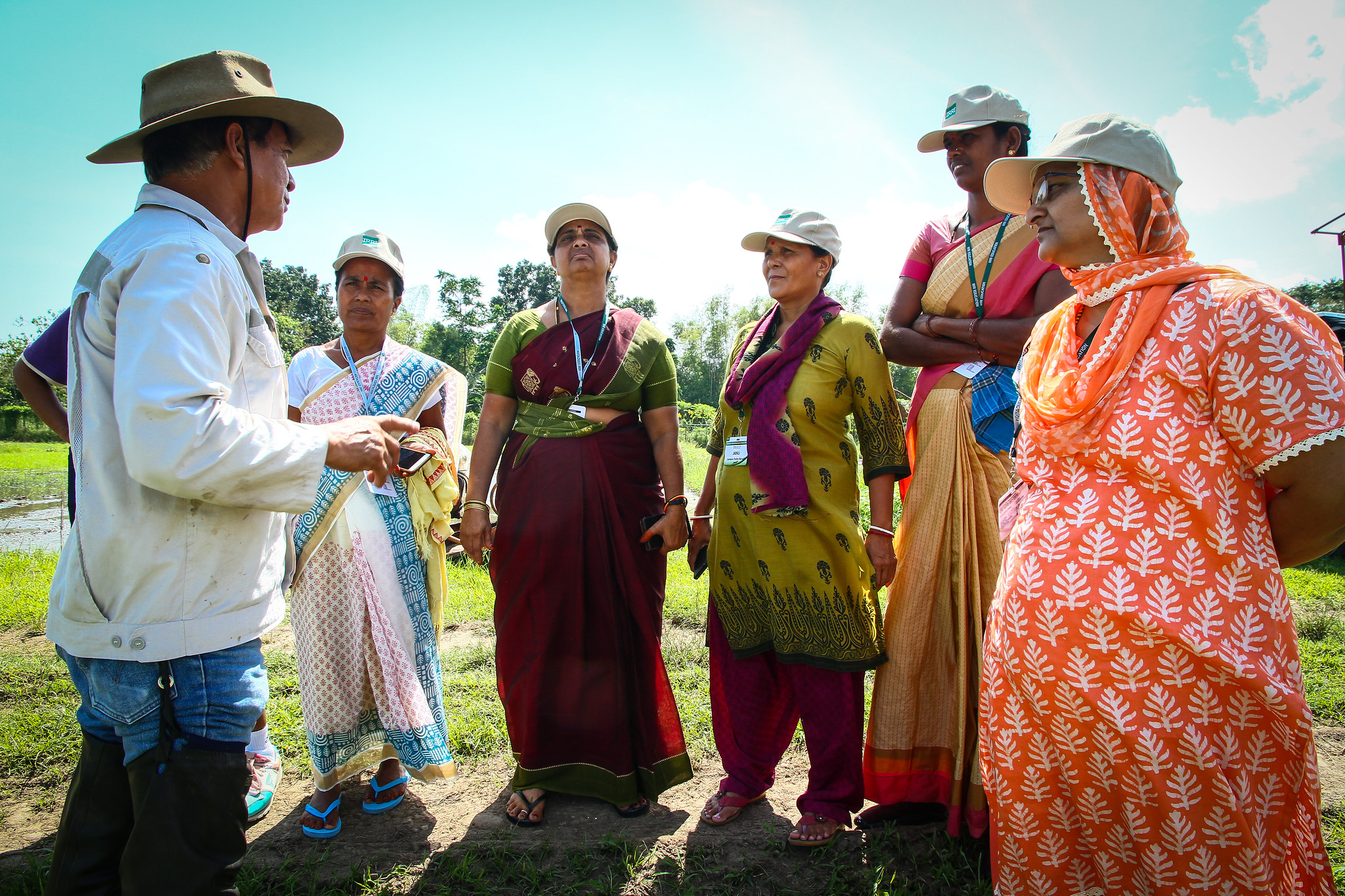Equality and Technology are Central to Sustainable Global Food Security

The COVID-19 pandemic has revealed a brutal truth: while global agricultural markets remained stable with production levels even reaching an all-time high, smallholder farmers and rural communities continue to reel from value chain disruptions, job and income loss, and food price inflation.
These challenges are more striking in developing countries across South Asia and Africa, where a huge majority of the population work in small farms and where agriculture has been the lifeblood of rural families for many generations.
In a discussion at Foresight4Food 2020, IRRI scientists Abdelbagi Ismail and Ranjitha Puskur doubled down not only on the role of smallholder farmers and existing threats to food security and food systems sustainability in these regions, but also key opportunities that can be maximized by a more targeted approach toward gender equality and increased rice productivity.
Gender equality in ag and food systems
Smallholder women farmers continue to play a central role in agriculture, in general and rice systems, in particular for many centuries, but they remain invisible, unheard and reap the least benefits from their engagement. South Asia is marked by huge social and economic inequalities. It is estimated due to the impact of COVID-19 pandemic, there will be 129 poor women for every 100 poor men in South Asia by 2030.
“Women constitute the majority of smallholder farmers but are not recognized as so, as they do not own the land. Evidence says In India, women managed rice farms are 11% less productive because of the gender gap in access to resources and missing managerial experience,” said Puskur, IRRI’s Research Lead for Gender and Livelihoods.
With less than 10 years to achieve the Sustainable Development Goals (SDGs), it is imperative for decision makers in South Asia to achieve more equitable rice-based economies. We need to urgently expand economic opportunities for women, so they can diversify their livelihood portfolios and income sources. Land rights and developing robust social protection programmes targeting women are critical.
Evidence shows that women producers’ and farmers’ organizations have proven to be effective when linked to markets and for increasing the agency and confidence of women. Linking women and their collectives with financial institutions and government agencies is important.
“There are no silver bullets. Transplanting models from one region to another does not work due to the high social and institutional diversity” Puskur cautioned.
Systems thinking
Ismail, IRRI’s Regional Representative for Africa, highlighted Africa’s untapped productivity potential from water and land. According to him, rice production in the region can at least be doubled and smallholder farmers should get more attention as a result.
There are also several opportunities that can be seized to modernize Africa’s rice production systems, including the introduction of modern technologies such as small-scale mechanization, improved seed systems to replace traditional production systems and old varieties, provision of access to fertilizers and other inputs, better post-harvest practices, and supportive policies that provide incentives for more production, including access to markets.
Over the last decade, smallholder farmers have started to acknowledge the importance of scale and have begun to organize themselves in farmer groups. Many of them are now fully aware of how these groups can help them get better bargaining power, access to and exchange of knowledge, and improved access to credit and grantee minimum market price.
In order to drive faster and wider change in the region, Ismail highlights the importance of farmers realizing that they must move from subsistence farming to commercialization. Another key driver would be the introduction and replication of modern technologies that transformed rice systems elsewhere, in Asia and Latin America, which IRRI started to implement in several countries in East and South Africa.
Finally, governments in the region are starting to shift away from conventional strategies and thinking, from commodities to improving rice production as part of an agri-food system, where smallholder farmers are critical, but with several challenges to resolve.
“It is important for us to consider production and economic sustainability as an integral part of our research and delivery activities specially for small scale farms in Sub-Saharan Africa. We have to look at global issues like climate change, rapidly growing populations, global disasters like pest outbreaks, weather calamities, health emergencies, and the consequent economic shocks on smallholder farmers with lean cushions. Our goal now is to work more strategically to secure affordable food and improved nutrition locally and regionally, to trigger economic growth towards prosperity,” Ismail said.
Read the summary of E-dialogue Session 3: Regional Perspectives - Africa
Read the summary of E-dialogue Session 3: Regional Perspectives - South Asia